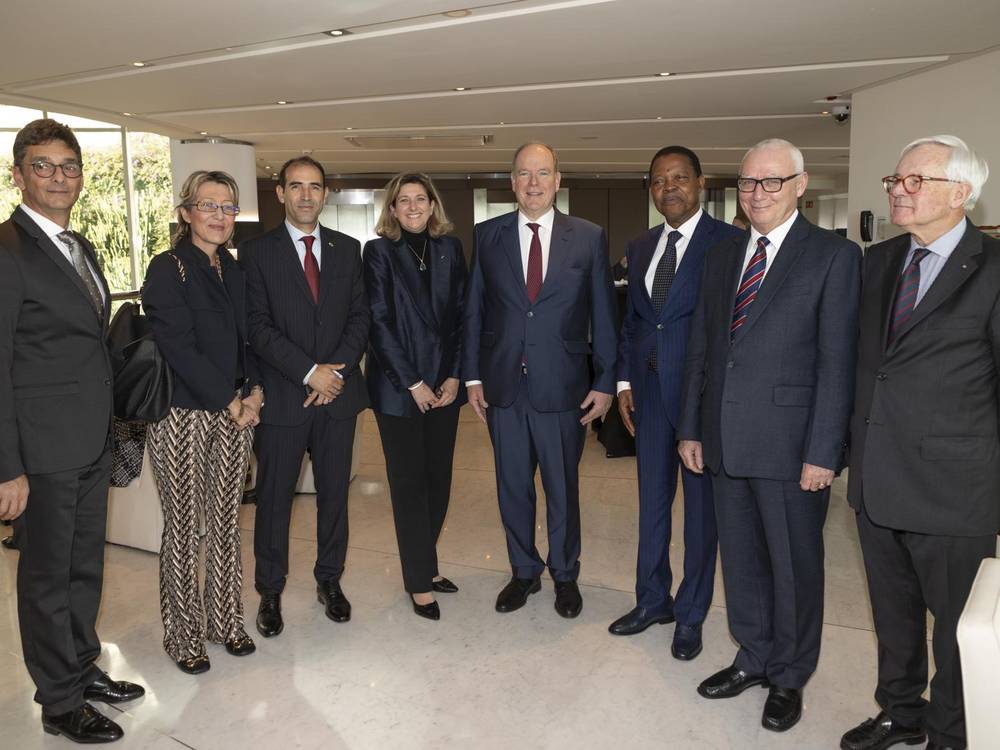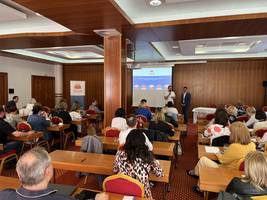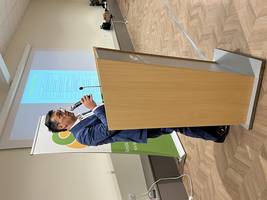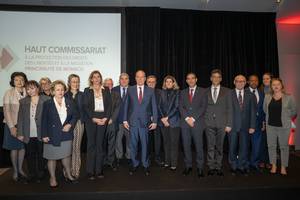The Human Rights Ombudsman of the Republic of Slovenia is on a two-day working visit to the Principality of Monaco. At the invitation of Marina Ceyssac, the High Commissioner for the Protection of Rights, Liberties and for Mediation, Ombudsman Peter Svetina, in his role of Vice-President of the Association of Mediterranean Ombudsmen and the Director of the European section of the International Ombudsman Institute, participated at the celebration marking the tenth anniversary of the Monaco institution for the protection of human rights carried out under the auspices of His Highness Prince Albert II of Monaco, who also attended the celebratory event.
“Even though ombudspersons across Europe do not all operate in the same geopolitical circumstances and do not face completely comparable challenges, we are still bound by the same values like an invisible glue: humanity, nobleness, compassion, heartiness, and selflessness. We are tied together by our care for the dignity of our fellow human beings who, due to different circumstances, have their rights trampled on,” emphasised Ombudsman Svetina in his celebratory address to the event participants. “When I think about our work, I cannot imagine how we could retain the trust of people turning to us with their problems, if we would not put ethics and morals on a pedestal. If we would not operate with a high degree of integrity and a sense for our fellow man. People who turn to us for help frequently lament that institutions are moving away from the individual who is often lost in papers, decisions, and orders. Passivity, lack of clarity, pressures, and influences on the decision-making processes, as well as the complicated normative framework, in which people are lost, sadly often solely online access which many do not have the necessarily skills for, lack of information, and frequently also of a clear vision justifiably reinforce dissatisfaction and uncertainty among people,” he said.
He touched upon the significance of the duty of disclosure, which is closely connected to the principle of good administration, which derives from Article 41 of the Charter of Fundamental Rights of the European Union. He underlined that this principle is generally implemented in national legal orders as the general administrative principle, yet on the national level it is seldom set down in constitutions or concretised in practice. An interesting fact is that in Slovenia this principle is especially protected by the Human Rights Ombudsman Act, which in Article 3 stipulates that in his work, the Ombudsman follows the provisions of the constitution and international legal acts on human rights and fundamental freedoms, and that in his interventions, he can refer also to the principles of equity and good administration. He added that for several years, the principle of good administration has unfortunately been among the most frequent violations that he as the Ombudsman has been finding in Slovenia. This is also why, as he stated, he believes in the importance of education and the empowerment of public servants to assume personal responsibility in their actions for the protection of people’s rights. “It is only through personal responsibility and by keeping in mind the person on whose destiny we are deciding that we can strengthen a society that is humanitarian, inclusive, and forgets nobody,” believes Peter Svetina.
This is also why he believes that it is extremely important that the Charter of Fundamental Rights of the European Union elevates this right to the level of citizens’ rights. Such definition concretises the understanding of good administration, which is also relevant for the implementation of the Charter on the national level. Moreover, it can indirectly contribute to the understanding of this right in cases when national bodies are failing to implement the EU legislation.
“This is also one of the reasons why, in my engagement in the international space, I strive for as much raising awareness and education on this topic as possible, as well as on the tasks and competences of ombudsmen which are, in some countries more and in others less, comparable. This is also why events like today’s are immensely important. Just like the strengthening of the role of the national human rights institutions and the institutions of the Ombudsman is of the utmost importance – their financial independence and operation according to the so-called Paris and Venice Principles. For it is crucial that we have suitable mandate and competence for the consideration of complaints, investigation of human rights violations, and for the monitoring and recommending measures for improvement. Only through strong and independent institutions, we can ensure that no individual is left without the appropriate protection of their rights. Connected we are stronger and solely in cooperation can we ensure that the institutions we ombudspersons lead have the necessary tools to efficiently fulfil their mission,” highlighted the Slovenian Human Rights Ombudsman Peter Svetina in his address in Monaco.
- Speech delivered by the Human Rights Ombudsman of the Republic of Slovenia, Mr Peter
Svetina
- Official Photos (Photo: Axel Bastello/Princely Palace)

![[Translate to English:] Vodstvo dogodka s princem Monaka.](/fileadmin/_processed_/a/3/csm_Vodsvto_dogodka_Monako_0c1a4eb77b.jpg)





